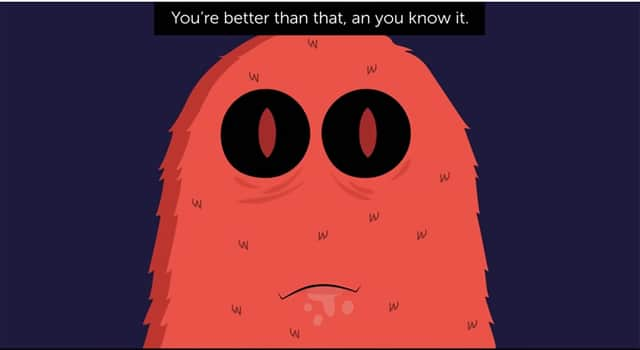What is the Hate Crime Act, and why is it so controversial?


New legislation to tackle hate crime in Scotland has sparked a blazing row about freedom of expression, censorship and the reach of the state.
The Hate Crime and Public Order (Scotland) Act will came into force on April 1, three years after it was passed by MSPs in Holyrood.
Advertisement
Hide AdAdvertisement
Hide AdAt the time, it was described as one of the most controversial pieces of legislation ever to pass through the Scottish Parliament.
Concerns were raised by a wide variety of groups, including opposition politicians, lawyers, campaigners, religious leaders and police representatives.
As a result, it was heavily modified, and provisions to protect freedom of information were strengthened. But fears over its impact remain.
What does the new legislation do?
The Act consolidates existing law, while also expanding it significantly. It makes it an offence to stir up hatred on grounds of age, disability, religion, sexual orientation and transgender identity.
This means that from April 1, it will be an offence for a person "to behave in a manner that a reasonable person would consider to be threatening or abusive, or to communicate to another person material that a reasonable person would consider to be threatening or abusive, with the intention to stir up hatred against a group of persons based on the group being defined by reference to one of the listed characteristics".
Stirring up racial hatred is also covered by the new legislation. However, this was already illegal, and has been for decades. Race enjoys extra protections compared to the other characteristics.
The offence of stirring up racial hatred includes "insulting" behaviour – not just that which is deemed threatening or abusive – as well as behaviour "likely to result in hatred being stirred up", regardless of intent.
Under the Act, offenders convicted of crimes "aggravated by prejudice” – that is, those where there was “malice and ill-will” towards a victim based on the protected characteristics listed above – also face tougher sentences.
Why is it so controversial?
Advertisement
Hide AdAdvertisement
Hide AdBroadly, concerns about the legislation fall into two categories: those relating to the Act itself, and those relating to how the police might handle it.
There are fears the law itself potentially stifles freedom of expression. Issues around transgender identity, for example, are contested and can be politically toxic.
The Scottish Conservatives highlighted what they called the "inherent ambiguity" of the legislation when it was passed in 2021.
Supporters point out the Act contains provisions to protect freedom of expression. For all the protected characteristics except race, it specifically says “discussion or criticism” will not be covered.
In the case of religion, it goes even further. It makes clear “expressions of antipathy, dislike, ridicule or insult” will also be exempt.
Elsewhere, it says “particular regard must be had to the importance of the right to freedom of expression by virtue of Article 10 of the European Convention on Human Rights, including the general principle that the right applies to the expression of information or ideas that offend, shock or disturb”.
Of course, for some, this does not go far enough. The legislation covers all forms of communication, and concerns have recently been raised about the impact on comedy and the arts.
There are also fears Police Scotland could be inundated with complaints relating to social media rows involving high-profile figures such as JK Rowling. It has said it will investigate every hate crime complaint it receives.
Advertisement
Hide AdAdvertisement
Hide AdThe Scottish Police Federation (SPF) previously told The Scotsman the online training given to officers was “not fit for purpose”.
Its general secretary, David Kennedy, said: “We could end up with people being charged who should not be charged because people do not understand the law. We are asking officers to police a law that they are unprepared for.”
OK, but what on earth is the “Hate Monster”?
Police Scotland launched a campaign ahead of the new laws coming into force, which featured a cartoon character called the “Hate Monster”.
"Ye might know this hing here,” a narrator says in a captioned video. “It’s the Hate Monster. When yer feeling insecure, when ye feel angry, he’ll be there, feeding aff they emotions. Getting bigger and bigger, till he’s weighing ye doon.”
Before you know it, the video continues, “ye’ve committed a hate crime”. It finishes by telling the public: “Don’t feed the Hate Monster.”
Critics immediately branded the campaign patronising and "puerile”. Police Scotland was then accused of downgrading it on its website in response to the backlash.
Asked about this, the force pointed out the campaign material is still on its website.
What about ‘third party reporting centres’?
Controversy has also bubbled up over “third party reporting centres”. These have been in operation for a decade, but recently hit the headlines given the new legislation.
Advertisement
Hide AdAdvertisement
Hide AdThey are services such as libraries, housing associations and charities where people can report hate crimes if they don’t feel comfortable going to the police.
However, they also include more unusual venues such as a sex shop in Glasgow called Luke and Jack and a mushroom farm in East Lothian.
Luke and Jack previously described the criticism on social media as a “knee-jerk reaction”. Ian Diamond, who co-founded the business, told The Scotsman the shop was “a safe space for people to come in and actually talk”.
However, some have questioned the appropriateness of any crime being reported to an outside body.
Comments
Want to join the conversation? Please or to comment on this article.
